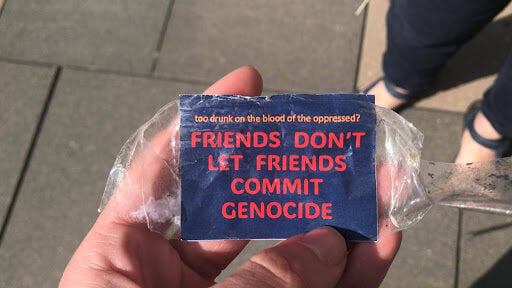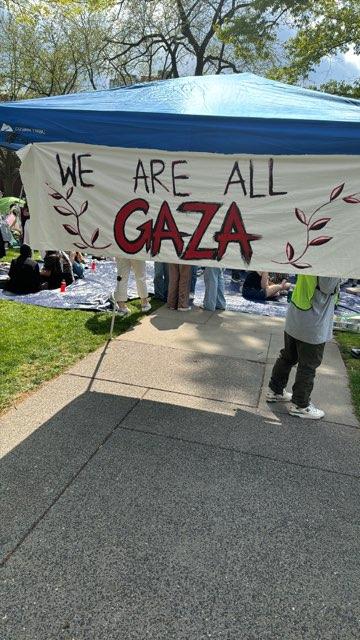Pesachim 28a
It’s 1 p.m. on Wednesday afternoon, Erev Pesach. The rabbi has already sold the chametz at 11:19 a.m. But I forgot to sell mine. Now the synagogue office is closed and I can’t get hold of the form the rabbi uses to sell the chametz. The Torah requires me to remove all chametz from my house on Pesach. But I just cannot bring myself to throw out that Glenflidich. Is there a way that the whisky may remain in my house during Pesach and after Pesach I can drink it too?
The Torah prohibits the consumption and possession of chametz by a Jew after the seventh hour on Erev Pesach, and the rabbis prohibit the consumption after Pesach of chametz possessed by a Jew during Pesach—chametz she’avar alav haPesach. In order to create a safety zone and avoid the inadvertent consumption of chametz on Erev Pesach after noon, the rabbis prohibit the eating of chametz after the fourth halachic hour of the day. Between the fourth and the fifth halachic hour of the day, one may not eat chametz, but one may still derive benefit from it or sell it to a non-Jew. By the end of the fifth halachic hour of the day, the chametz must be both burned, biur chametz, and legally nullified, bitul chametz, by reciting the nullifying declaration known as Kol Chamira. At the same time, the sale of chametz to a non-Jew takes effect.
If the chametz has already been legally nullified and physically burned, so that it is neither owned nor possessed by a Jew, why is it necessary to sell it to a non-Jew? The answer is that the intent to nullify one’s ownership may not have been sincere (that bottle of Glenfiddich) or one may have entertained the thought, during the bitul declaration, to sell certain chametz rather than nullify it. Furthermore, one may have neglected to destroy all one’s chametz, such as, for example, certain brands of deodorants and colognes, etc. So if the chametz is sold, why is it necessary to burn it? The answer is that there is a positive commandment to destroy chametz, hashbatah. While it is unnecessary to incur severe financial loss by destroying all chametz, a token amount of chametz should be burned to fulfill the mitzvah of hashbatah.
Are you kidding? You know the non-Jew is not going to consume your chametz. He is not really paying you for it and neither is he taking possession of it. He does not even know where it is. Even if he did, how is he going to gain access to your house on Pesach? And what happens if, after Pesach, he refuses to sell it back to you?
If properly done, the sale of chametz is, indeed, an effective sale. Such a sale should cause as little skepticism on our part as other everyday legal structures, such as the sale and lease back of machinery, where the equipment never leaves the premises of the purchaser and little money initially changes hands. The fact that the non-Jew chooses not to exercise his right of ownership does not mean that he does not have this right. Neither does it render the sale fictitious. In fact, if the non-Jew paid the full value of the chametz and refuses to transfer ownership of the chametz back to the Jew after Pesach, there is no way, under Jewish law, that one can compel him to do so. The sale is irrevocable, unless the non-Jew chooses to rescind it after Pesach.
The origins of this sale can be found in the Tosefta. A Jew and a non-Jew were traveling together on board a ship on a business trip. It was Erev Pesach and the Jew had chametz in his possession He did not want to throw it overboard, neither did he want to give it away. The Tosefta permits the Jew to sell it to the non-Jew with the intention in mind of buying it back after Pesach. As long as the transaction is not structured as a conditional sale, it works. Later, the rabbis of the Jewish whisky merchants of medieval Europe further refined the legal structure. Because the taking of possession of the whisky by the non-Jew often resulted in damage and because few non-Jews were able to afford the full purchase price, the rabbis devised halachic ways to leave the chametz in the possession of the Jew during Pesach even after the sale and to effect the sale for a token upfront payment. “If you cannot remove the Chametz,” said the rabbis, “sell or rent the room or space in which the chametz resides.” And based on the concept of a credit sale, already known to the Talmud sages, they permitted a token payment to be made up front and the rest to be deferred as an IOU, to be repaid by the non-Jew after Pesach. Immediately after Havdalah on Motzei Pesach, the rabbi asks the non-Jew if he would agree to sell the chametz back. If the non-Jew agrees, the deposit is returned and the loan becomes void. It is just like when you return the air conditioner to the store you purchased it at, with minimum payment on your credit card.
Since the terms of the sale are complicated, it is our practice to leave the transaction in the professional hands of the rabbi by signing a power of attorney in his favor, just as one would authorize an attorney to sell one’s house. The power of attorney sets forth the basic details of the type, value and whereabouts of the chametz and how it can be accessed during Pesach and the rabbi then sells the chametz to the non-Jew on your behalf. According to Rabbi Moshe Feinstein, if you cannot get to the rabbi to sign, you can empower the rabbi over the telephone. Based on the principle of zachin le’adam shelo befanav (one Jew may perform a mitzvah for another Jew, even without his consent), many poskim rule that the power of attorney can cover all members of the community, even those who forgot to sign the power of attorney or call the rabbi before Pesach.
If you are traveling to Israel for Pesach and you have not sold your USA chametz before you leave, you should sell it in Israel before the fifth hour, Israeli time, even though it is long before Pesach in the USA. On Motzei Pesach, however, you should wait until Pesach is out, USA time, before buying it back.
Raphael Grunfeld, a partner at the Wall Street law firm of Carter Ledyard & Milburn LLP, received semicha in Yoreh Yoreh from Mesivtha Tifereth Jerusalem of America and in Yadin Yadin from Rav Dovid Feinstein, zt’’l. This article is an extract from Raphael’s book “Ner Eyal: A Guide to Seder Nashim, Nezikin, Kodashim, Taharot and Zerayim” available for purchase at www.amazon.com/dp/057816731X and “Ner Eyal: A Guide to the Laws of Shabbat and Festivals in Seder Moed” available for purchase at https://www.amazon.com/Eyal-Guide-Shabbat-Festivals-Seder/dp/0615118992. Questions for the author can be sent to [email protected].












